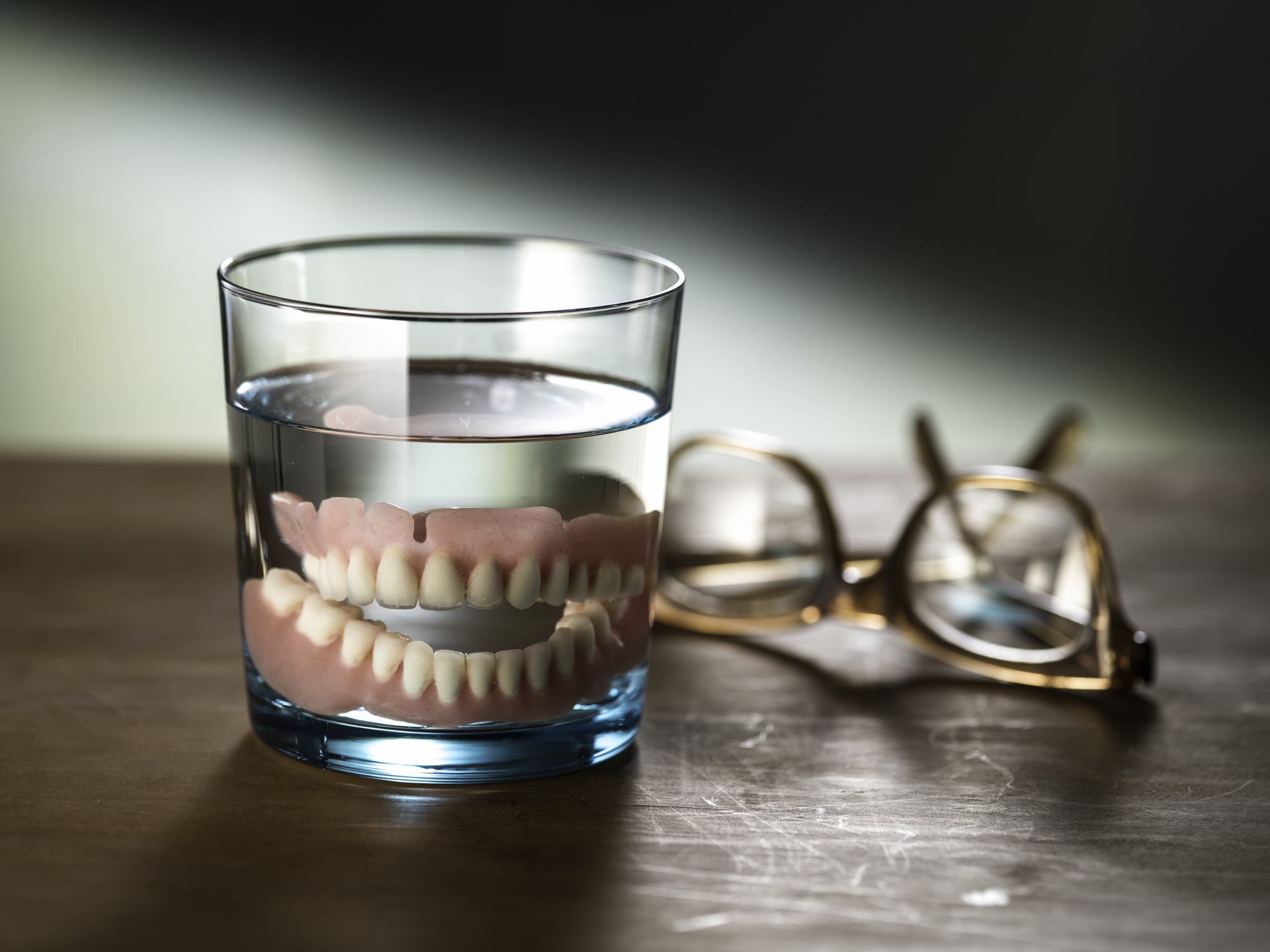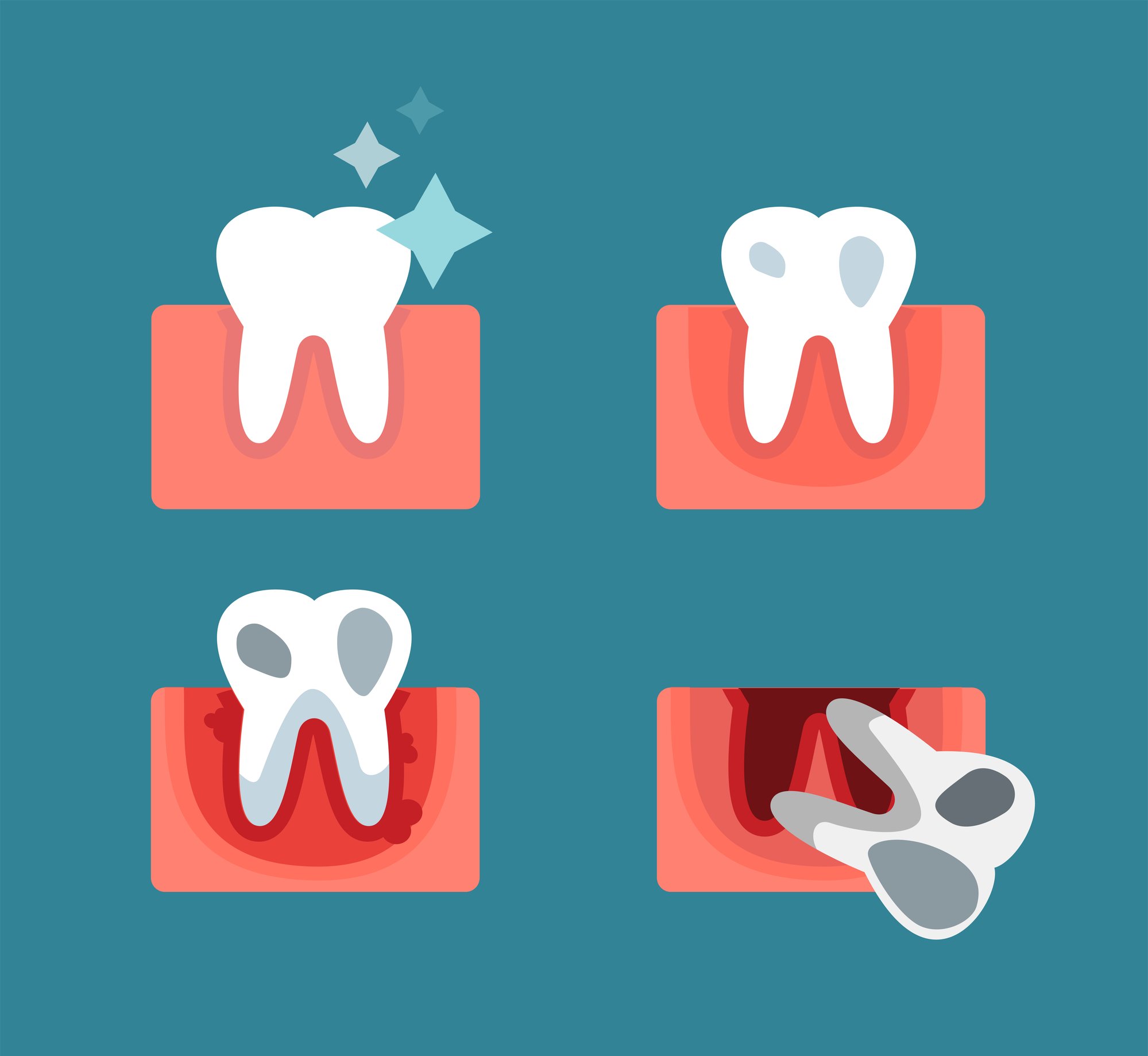
When it comes to replacing missing teeth, dentures are a popular option because of the many benefits they offer. These include improved appearance, easy maintenance, improved function, comfort, and support.
Not sure if dentures are right for you? The best way to find out is to visit your local dentist! He or she will examine your mouth and offer treatments that will fit your smile goals, lifestyle, and budget.
When it comes to making dentures last, proper care is essential. When a person follows their dentist’s guidelines, his or her dentures can last up to ten years without needing to be completely replaced. Check out the rest of this blog to learn our top five tips for long-lasting dentures.
Denture Care Tip #1: Clean them daily.
You wouldn’t go a day without brushing your teeth, right? The same rule applies to dentures. Cleaning them every day is a MUST. Plaque forms on dentures just like it does on natural teeth, and certain foods and drinks can stain them. If they aren’t cleaned properly, the dentures will appear dull and yellow and have a funny smell.
It is also important to rinse them after each meal. The food and bacteria surrounding your gums and denture can lead to gum disease, bad breath, and other serious oral health problems.
Denture Care Tip #2: Clean them properly.
Regular toothpaste can damage dentures. Be sure to use lukewarm water and a soft-bristled denture brush when cleaning the denture. Hot water can warp the dentures, making them fit uncomfortably. At night, soak the dentures in cool water or a denture cleaning solution.
Denture Care Tip #3: Be gentle.
If you are cleaning or removing your dentures, do so over a sink filled with water or a soft surface, like a folded towel. The denture can be easily damaged if dropped on a hard surface. Again, make sure to use a denture cleaner and soft-bristled denture brush so that the teeth do not become scratched or discolored.
Denture Care Tip #4: Remove them properly.
Denture adhesives and suction keep traditional dentures held in place throughout the day, so removing them can be a challenge. Here are three tips for removing dentures:
- Swish with warm water or mouthwash beforehand
- Top denture: Place your thumbs against the back of the front teeth; pull forward and upward towards your nose until they come loose
- Bottom denture: Pull the denture outward in a rocking motion until it releases
Denture Care Tip #5: Visit the dentist regularly.
Six-month dental visits are so important for denture wearers. During these appointments, your dentist will check for wear and tear on the dentures as well as signs of irritation and gum disease. Treatment for these conditions is imperative for maintaining a healthy mouth and keeping your dentures comfortable.
More About Dentures
Applying these guidelines to your daily oral hygiene routine will certainly improve the longevity of your dentures, but that doesn’t mean they won’t need regular maintenance. Without natural teeth, your mouth will continue to change. Therefore, your dentures will likely need to be relined or rebased every few years.
With proper maintenance and help from an experienced dentist, dentures should last between seven and ten years. To learn more about dentures and denture care, contact our experienced dentists at Magic Smiles. Call (02) 6654-0650 today.





Recent Comments